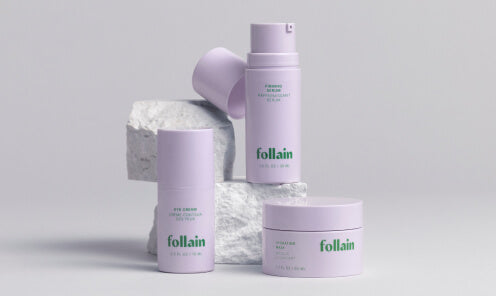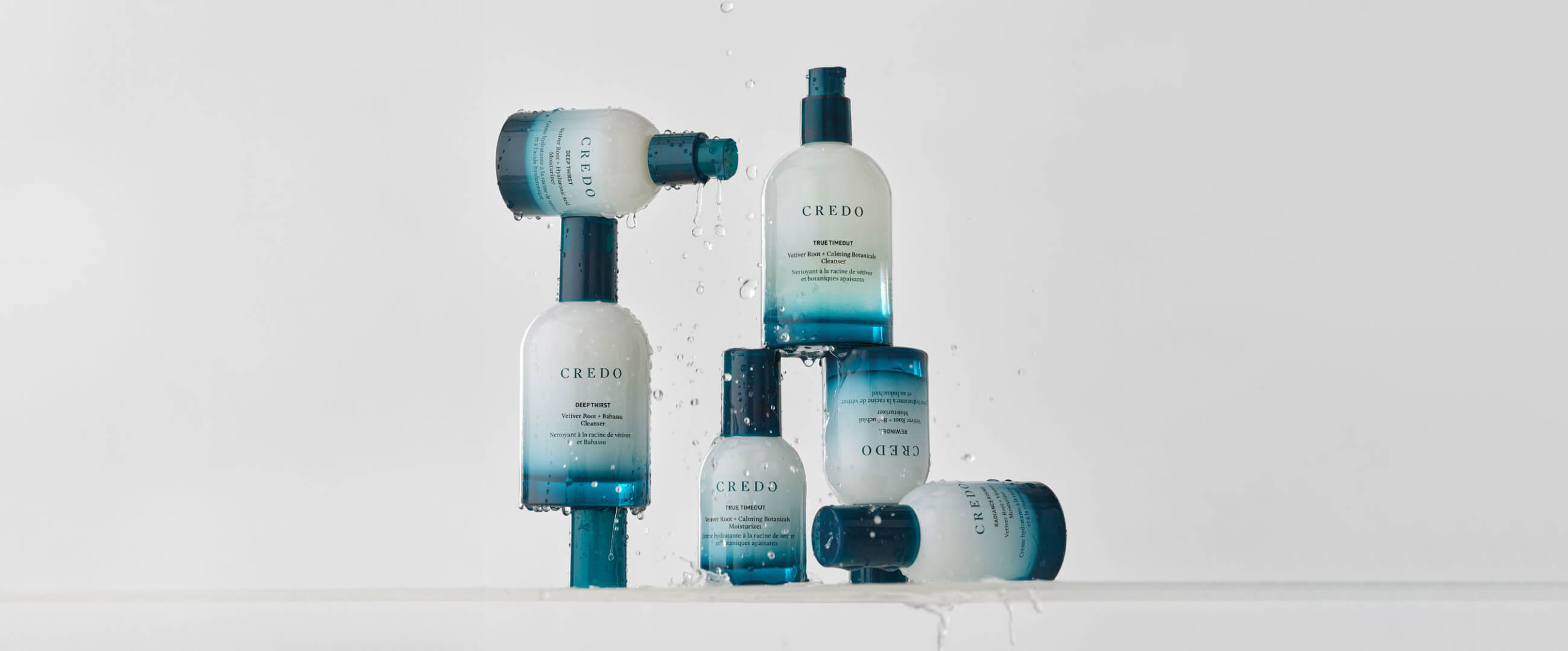Frequently Asked Questions
-
What hyaluronic acid does for the skin?
Hyaluronic acid skin care is well known for its intense hydrating and moisturizing properties. Hyaluronic acid keeps your skin moisturized and helps it retain water, which can improve skin elasticity and texture, resulting in an overall plumper, smoother appearance. The plumping effect hyaluronic acid has on the skin also helps to reduce the appearance of fine lines and wrinkles. At Credo Beauty, we offer various clean beauty products that not only contain this powerful ingredient but also adhere to our industry-leading vetting–The Credo Clean Standard™. -
Is hyaluronic acid safe for all skin types?
Hyaluronic acid products are well known for being suitable for a wide range of skin types. Whether you have dry, combination, or oily skin, hyaluronic acid will generally be safe for you to use. Plus, as we ban or prohibit over 2700 potentially harmful ingredients, you can be sure that the hyaluronic acid products you use are safer and gentle on your skin. However, if you have extremely sensitive skin or specific skin conditions, it’s advised to carry out a patch test first to ensure no irritation occurs. -
Can hyaluronic acid help with anti-aging?
One of the benefits of hyaluronic acid is its ability to help reduce the appearance of fine lines and wrinkles by intensely hydrating your skin and making it appear more plump. Hyaluronic acid is known to play an important role in collagen production, too, which helps your skin maintain its elasticity and structure. -
Can I use hyaluronic acid with other skin care products?
Hyaluronic acid makeup and skin care products pair well with a wide variety of other products, especially those containing ingredients such as retinol, as it helps keep your skin hydrated and combats the drying effects retinol can have. Niacinamide is another ingredient that works well with hyaluronic acid, as these ingredients work together to improve the skin barrier function and texture of your skin. You can layer hyaluronic acid serums or skin care products with other products such as moisturizers, treatments, cleansers, and SPF. Just make sure you apply your hyaluronic acid after using your cleanser, toner, and water-based serum and before using other treatments, moisturizer, and SPF. -
Are there any side effects of using hyaluronic acid?
It’s very uncommon for hyaluronic acid to cause any side effects. However, if you have sensitive skin or allergies, irritation or redness may occur. While this is unlikely, higher concentrations of hyaluronic acid are usually responsible for causing this, especially if applied to already irritated skin. It’s important to carry out patch tests before trying new products, and if irritation or discomfort occurs when using products you should discontinue using them straight away and seek advice from a dermatologist or healthcare provider. -
What is the difference between hyaluronic acid and sodium hyaluronate?
The main difference between hyaluronic acid and sodium hyaluronate is their molecular size, which in turn affects how efficient they are at penetrating the skin. Hyaluronic acid is a larger molecule while sodium hyaluronate is smaller and derived from hyaluronic acid. Being smaller in size, sodium hyaluronate is capable of deeper penetration when applied to the skin, resulting in more intense hydration and making it more suitable for drier skin and deep wrinkles. Hyaluronic acid, on the other hand, is more suitable for sensitive skin and is extremely effective at keeping the surface of your skin hydrated while reducing the appearance of fine lines. -
Can hyaluronic acid be used on sensitive skin?
Hyaluronic acid is known for its gentle and non-irritating hydrating abilities, making it a good choice for many people who have sensitive skin. Many dermatologists recommend hyaluronic acid products for people with sensitive skin, however, you should always carry out a patch test when trying new skin care products for sensitive skin to ensure the product is safe for you to use and doesn’t cause any reactions when applied to your skin. As sensitivities can vary, make sure to take a look at the other ingredients in a product. As we constantly push for greater transparency in the industry, we aim to make this easier for all consumers. -
Can hyaluronic acid be used on the body as well as the face?
Hyaluronic acid can be used as part of your body and hair care routines as well as on your face. Its hydrating abilities mean it has many benefits for dry skin, including areas such as your hands, elbows, décolletage, knees, or anywhere else on your body that’s prone to dryness. It’s also used in hair care products, as it can help repair dry, damaged hair and soothe scalp irritation. Body creams and lotions, serums, shampoos, conditioners, and hair masks containing hyaluronic acid are all highly recommended for skin and hair that needs a boost of hydration.
- Choosing a selection results in a full page refresh.
- Opens in a new window.




















